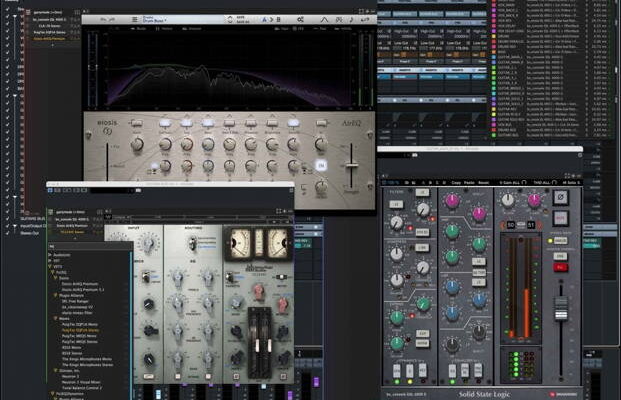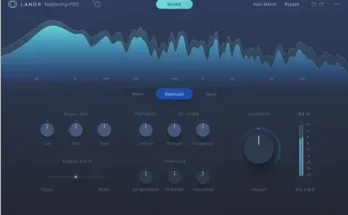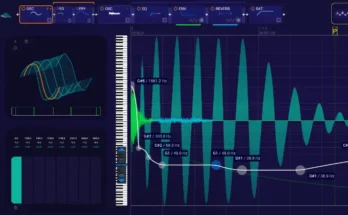AudioGridder v1.1 WIN MAC [FREE]
FREE | 13 July 2022 | 177 MB
AudioGridder is a plugin host, that allows you to offload the DSP processing of audio plugins to remote computers running macOS or Windows. This can come in handy when mixing complex projects or running CPU intensive instruments for instance. AudioGridder comes with a plugin and a server and supports VST2, VST3 and AudioUnit plugin formats. Plugins can be hosted and accessed across the network: simply run the AudioGridder server on a remote machine and connect your DAW using the AudioGridder plugin. This allows you to add remote insert chains or instruments into your DAW’s signal paths. The DSP code of the loaded remote plugins will be executed on the remote machine and the remote plugin UI’s will be streamed over the wire. With AudioGridder you get an experience very close to hosting the plugins directly in your DAW but not using your local CPU.
SERVER
The server supports VST2, VST3 and AudioUnit (on macOS only) plugin formats and is available for macOS and Windows. There are multiple possibilities for your setup. It is suggested, that you dedicate each server instance to a single remote DAW workspace. That is because each server can only stream a single UI at the same time.
The server is implemented as tray application on all platforms. Just click on the tray icon to bring up the settings, plugin manager or statistics window.
You can run multiple parallel UI user sessions on macOS and Windows. Setup a user for each remote workspace, create a UI session (via VNC, note that RDP might not be working reliably with AudioGridder) and run a separate server instance in each session. You need to assign a different server ID to each instance (in the server settings). In your DAW you can address each server instance from the AudioGridder plugin via “server[:ID]” notation.
PLUGIN
The plugin is currently supported on macOS, Windows and Linux as VST2, VST3, AAX and AudioUnit (on macOS only).
With the AudioGridder FX plugin you can plug a remote insert effect chain into your DAW’s channel inserts. From there you can insert any FX plugin available on the connected server.
Instruments work similarly. Create a software instrument track in your DAW and select the AudioGridder plugin as instrument. Now you can load any of the instrument plugins available on the server.
Each AudioGridder plugin instance will connect to a single remote server instance. But each separate loaded plugin instance can connect to a different server, so you can connect to multiple servers from your DAW at the same time.
HOW DOES IT WORK?
AudioGridder Server runs on a computer hosting your effect and instrument plugins. On your workstation, on which you run your DAW, you use the AudioGridder FX or instrument plugin to access your plugin library over the network. The plugin is looking for available servers on your network and once connected allows you to create insert chains or load instruments. Midi and audio data from your DAW will be streamed over the network, processed on the server and streamed back.
To control a plugin and adjust its settings, AudioGridder is capturing the plugin UI on the server side and streaming it to the client. At the same time it is capturing mouse and keyboard events on the client and replaying them on the server.
Alternatively, AudioGridder supports a Generic Editor, that allows for direct access to the parameters of a plugin.
HIGHLIGHTS
FEATURES
VST2 / VST3 / AAX / AudioUnit (macOS only)
Effect & Instrument plugins
Latency compensation
32/64 bit float processing
Audio over network
Midi over network
Streaming of plugin UIs
Local control of remote plugin UIs
Unlimited remote effect plugin chains
Generic Plugin Parameter Editor
Automation
Plugin search
COMPATIBILITY
Server: macOS 10.7+ (Intel/Apple), Windows 7+
Plugin: macOS 10.7+ (Intel/Apple), Windows 7+, Linux 64bit
The server supports AudioUnit (macOS only) and VST2/VST3 plugins
The plugin is available as AudioUnit (macOS only) and VST2/VST3/AAX
Tested DAWs: Cubase 10 Pro, Pro Tools 12/2020.12, Logic Pro X, Reaper, Ableton Live, but others are being used too




